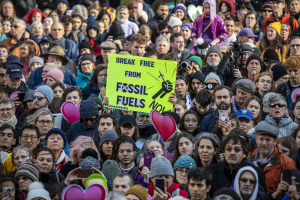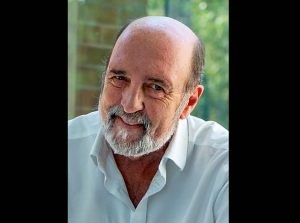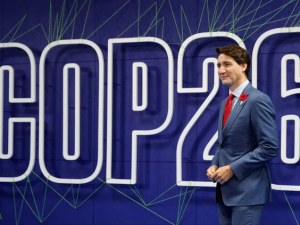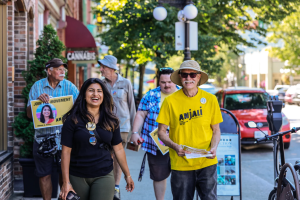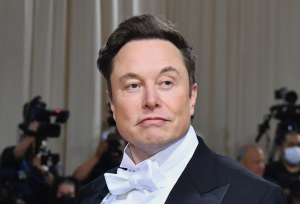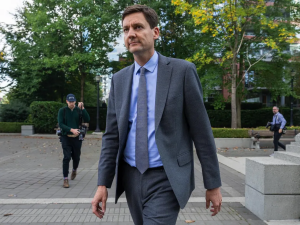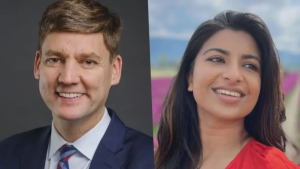Op-Ed: renewable energy rapidly grows in the Indo-Pacific, write Prof. Yves Tiberghien and PhD Candidate Sun Park
In this op-ed, Prof. Yves Tiberghien and PhD Candidate Sun Park discuss the development and implementation of renewable energy in the Indo-Pacific.
Prof. Kathryn Harrison on the boldness, riskiness, and power of activism in climate politics
“Civil disobedience is an act of public communication,” Prof. Harrison says in this CBC article. “It’s someone saying, ‘I am so frightened or I am so disturbed by an injustice that I am willing to put myself on the line to try to change your mind,’”
Prof. Gerald Baier comments on David Stuart serving as both North Vancouver District CAO and Port Moody councillor
David Stuart, already holding office as North Vancouver District Chief Administrative Officer, was recently elected as councillor for Port Moody. Few take on two civil service roles at once, but Prof. Baier acknowledges that Stuart is “allowed to have outside interests.”
Prof. Kathryn Harrison discusses Canadian climate politics under the Trudeau government
The current Trudeau government has been slow to act on environmental policy, despite the Prime Minister touting Canada as a leader in the fight against climate change. While this may be true, both Trudeau and Prof. Kathryn Harrison acknowledge that “[Canada’s] track record is not good.”
“Things hit this “crisis point” through a combination of factors,” says Prof. Max Cameron on the BC NDP’s disqualification of Anjali Appadurai
The recent disqualification of Anjali Appadurai from running for BC NDP leader has caused political commotion. In this interview, Prof. Max Cameron highlights that the party’s recent problems with engagement and membership don’t make the current situation any easier for the BC NDP.
Prof. Michael Byers calls for Elon Musk to step away from politics: “Is Mr. Musk oblivious?”
Elon Musk has made his controversial foreign politics opinions very clear, standing by them despite evidence and widespread criticism. Prof. Byers writes that the US government must step up to prevent further meddling from Musk in places like Ukraine and China.
David Eby is not an “obvious” retail politician, says Prof. Gerald Baier on the future BC premier’s rise to power
In the article on Eby’s history as an advocate and politician, Prof. Baier commented further on how Eby’s characteristics and public personality, though “cerebral” at times, will help him connect with BC residents.
Prof. Gerald Baier quoted in article on David Eby becoming BC premier with disqualification of Anjali Appadurai
“They had a process that they totally lost control of,” says Prof. Gerald Baier on Anjali Appadurai’s campaign for NDP leader, “which never looks good.” Despite Appadurai and her supporters’ plans to fight back after being disqualified due to unauthorized collaboration with third parties, David Eby is on track to become the next BC premier.
Visiting Prof. Swaran Singh highlights Xi Jinping’s distinct plans for China’s future in Op-Ed
Commenting on China’s role in international politics and the country’s ambitious modernization goals, Prof. Singh writes that “this is bound to make the Chinese modernization all the more closely intertwined with the rest of the world.”
Visiting Prof. Swaran Singh writes on the Indian defense sector’s potential
“In fact many sectors in India have lately begun talking of being on the ‘cusp of a revolution,'” writes Prof. Singh, “promising transformative early harvests of impressive outcomes.” As Prof. Singh highlights in his op-ed, though, the Indian weapons industry especially shows promise.

